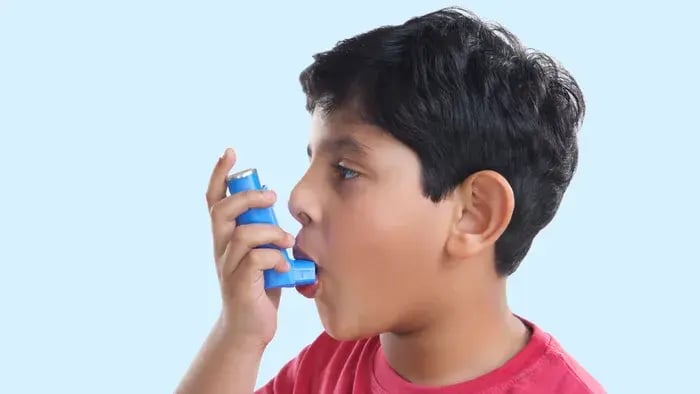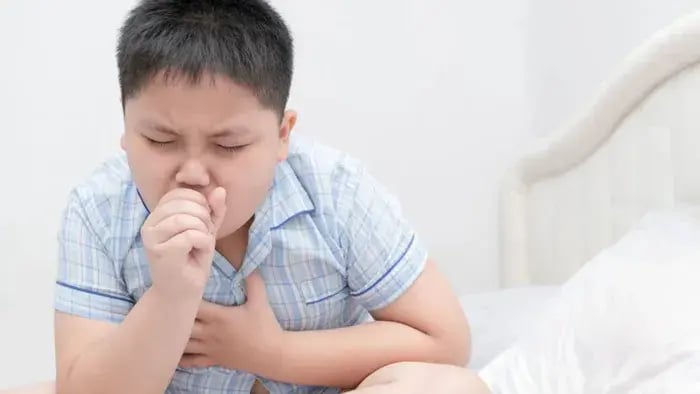Introduction
Asthma is becoming a concern for more and more parents, with the rising level of pollutants in the air. Since genetic, environmental, allergies, and respiratory infections increase the risk of occurrence in children, parents must keep a watchful eye on their symptoms.
Asthma is a chronic, respiratory disease that is caused or triggered by certain factors like pollen, mold, dust, and so on. Its ongoing nature and constant medical management are what make it so difficult for children to handle in the long run.
Asthma causes your child’s airways to get narrow, inflamed, filled with thick mucus, and tightened by the occasional bronchospasms when triggered. Its common symptoms include chest tightness, pain, or pressure, shortness of breath, coughing, and wheezing, though they vary from person to person.
This respiratory condition can be mild, moderate, or severe, in kids, and requires medical attention accordingly in frequency and intensity. But how is hygiene connected to it? The Hygiene Hypothesis by Dr. David Strachan has an interesting proposition.
According to his research, younger siblings were less likely to incur eczema or asthma. This is due to increased exposure to and transmission of infectious agents in the household via unhygienic practices. This means that children who are not exposed to allergens and microbial organisms from a young age are more likely to develop asthma and allergic diseases.
The Hygiene Hypothesis, later known as, the old friends/microbiota hypothesis, is particularly relevant today. The peak in the number of childhood asthma cases in developing and underdeveloped nations is a cause of concern for all. Here is a quick guide on it, along with some hygiene tips to manage asthma in children.
Hygiene Hypothesis And Its Impact On Asthma In Children

The hygiene hypothesis is supported by evidence and research that has shown that children who are born in households with low levels of lipopolysaccharides (a bacterial protein) are at an increased risk of developing asthma. This is because bacterial protein activates a particular receptor (TLR4) on immune cells that helps them recognize and combat foreign pathogens.
Commonly contracted childhood helminth infections also expose young children to pathogens that reach their immune systems to respond appropriately to triggers and allergens. But these are only possible when the child’s house is ‘too clean’. Yes, your house can be ‘too clean’ and safe for your child’s wellbeing.
If the house is free from all kinds of microbes, helpful and harmful ones, in their developing or infant years, they will have no immune power to help them stave off infections and diseases. Before birth, the fetus does not develop its own immunity fully, to avoid rejecting maternal nourishment and help.
But once they are born, they need to build their own immune response. This is done by building an immune system with healthy exposure to microbes in the environment. Also, children who are treated by antibiotics in infancy are at an increased risk of developing asthma and other allergies, due to poor gut microbiome.
While gut health takes time to be properly established in a child, once it is flourishing, do not let the microbiome suffer. It is responsible for the absorption of various vital vitamins and minerals, along with the prevention of diseases like metabolic disorders, cancer, heart disorders, and mental health conditions as well.
Therefore, it is essential to keep cleanliness on the priority list but not become overprotective and disturb healthy exposure to microbes in infancy. Here are some tips on using hygiene to combat asthma in children.
Tips On Using Hygiene To Combat Childhood Asthma

- Let your kids be messy and play with paint, pets, mud, and soil. This will help develop immunity in kids through healthy exposure to various allergens and microbes from a young age.
- Always remind them to wash their hands for 20-30 seconds after playing. Playtime can be messy; their personal hygiene should not be.
- If your child already has asthma, depending on severity, try to let them enjoy a normal and playful life like others, while keeping a watchful eye.
- Strictly restrict smoking in your house’s premises as even second-hand and third-hand smoke can cause and trigger asthma symptoms in kids.
- Arm your kids with their inhalers for emergencies every time they step out. They should know their doses and not exceed them without proper medical guidance at any point.
- Expose your kids to the great outdoors and animals from a young age as this will lower the chance of their fur becoming asthma or allergy triggers for your kids.
Conclusion

The hygiene hypothesis does not write off cleanliness when it comes to combating childhood asthma. It simply asks parents to not be solely focused on it. You can never make your house 100% sterile and free from harmful pathogens. But constant cleaning and hygiene practices might end up removing the helpful bacteria that could have developed and boosted your child’s immunity. So maintain a balance between hygienic practices and trying out the hygiene hypothesis, your child’s immune system will thank you in the future.
Kaushiki Gangully is a content writing specialist with a passion for children's nutrition, education, and well-being. With more than five years of writing experience and a science-based background, she provides nuanced insights to help families raise happy, healthy kids. Kaushiki believes in making learning and healthy eating fun, empowering parents with practical, easy advice.
The views expressed are that of the expert alone.
References
https://www.fda.gov/vaccines-blood-biologics/consumers-biologics/asthma-hygiene-hypothesis
https://pubmed.ncbi.nlm.nih.gov/29224909/
The information provided in this content is for informational purposes only and should not be considered a substitute for professional medical advice, diagnosis, or treatment. Always seek the advice of your physician or another qualified healthcare provider before making any significant changes to your diet, exercise, or medication routines.










